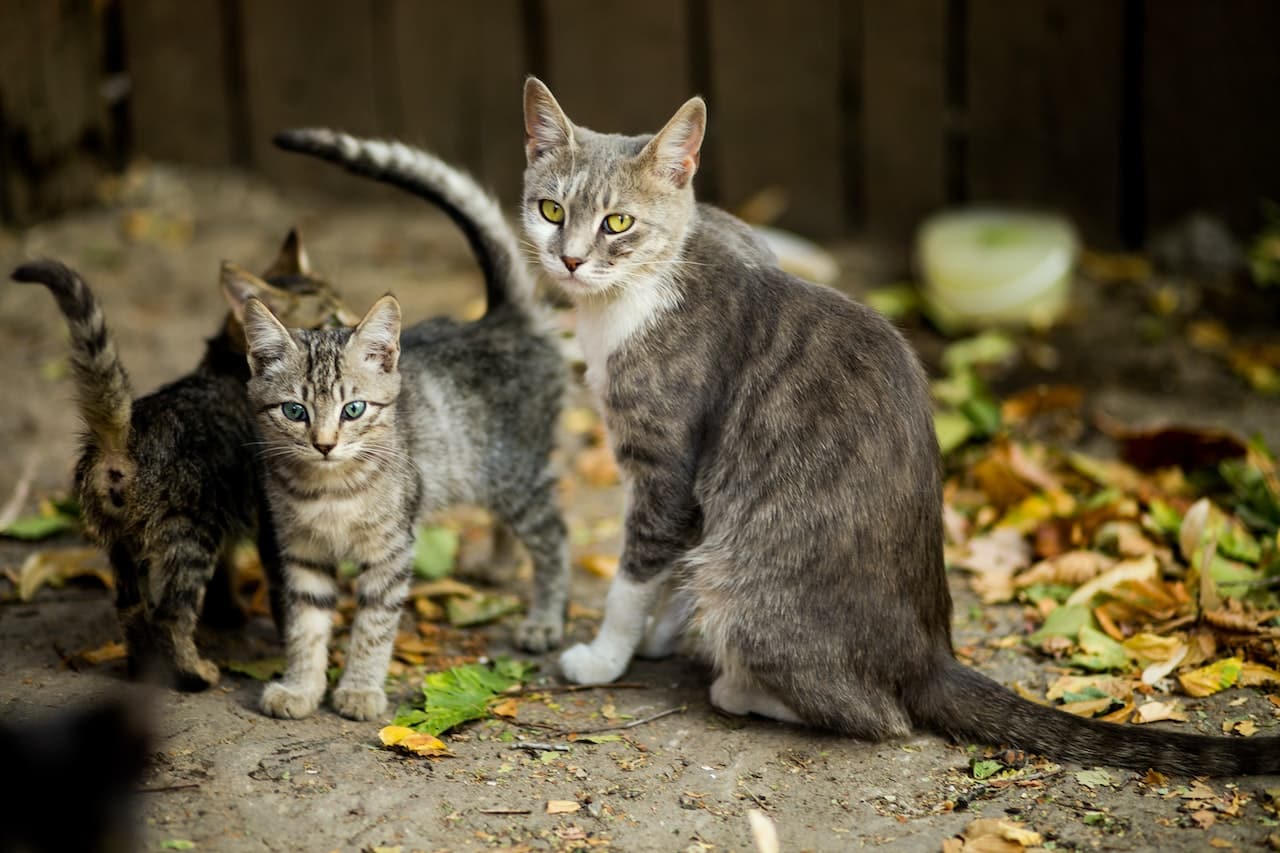
18 Rare Idioms from Languages Around the World
Idioms can leave you questioning why you spent so much time trying to understand a new language at all.
Every language has them. Even languages closely related to your native language might have odd or uncommon idioms that leave you feeling like you didn’t get the memo the first time you hear them.
That said, some idioms really “take the cake”—and guessing what they mean isn’t “as easy as pie.”
Here are 18 unusual idioms from around the world!
Contents
- 1. Stop ironing my head!
- 2. Are you still riding the goat?
- 3. Walk around in hot porridge
- 4. Emit smoke from seven orifices
- 5. Have other cats to whip
- 6. God bless you and may your mustache grow like brushwood
- 7. Have the cockroach
- 8. Live like a maggot in bacon
- 9. Inflate a cow
- 10. Hang noodles on someone’s ears
- 11. Dumplings instead of flowers
- 12. You can’t pluck feathers off a bald chicken
- 13. Ride an elephant to catch a grasshopper
- 14. As clear as dumpling broth
- 15. Pedal in sauerkraut
- 16. A germ across the sea can be seen, an elephant on the eyelid can’t
- 17. Get stuffed with hay
- 18. A dog in church
- And One More Thing...
Download: This blog post is available as a convenient and portable PDF that you can take anywhere. Click here to get a copy. (Download)
1. Stop ironing my head!
Country of origin: Armenia

Next time someone is annoying you, just tell them to stop ironing your head!
The Armenian Գլուխս մի՛ արդուկիր (glukhs mi՛ ardukeer), or “Stop ironing my head,” means “Stop annoying me!”
This idiom is so useful that it actually appears in other languages as well—for example, the Turkish Kafa ütüleme means “Don’t iron my head!”
2. Are you still riding the goat?
Country of origin: Northern Cheyenne Tribe (USA)
Cheyenne is a fascinating language that’s now highly endangered, with only a couple thousand living speakers, mostly on the Northern Cheyenne Indian Reservation.
It’s also the source of a rather catchy way of asking someone whether they’re separated from their spouse, Mónésó’táhoenôtse kosa?—literally, “Are you still riding the goat?”
3. Walk around in hot porridge
Country of origin: Czechia

I won’t “walk around in hot porridge,” I’ll tell you right away! Chodit kolem horké kaše is the Czech equivalent of “beat around the bush.”
As if the phrase “walk around in hot porridge” wasn’t already perplexing enough, the Finnish and Norwegians have also brought cats into the picture, using “pace around hot porridge like a cat” to mean the same thing (kiertää kuin kissa kuumaa puuroa in Finnish, å gå som katta rundt den varme grauten in Norwegian).
4. Emit smoke from seven orifices
Country of origin: China

The Chinese 七窍生烟 (qī qiào shēng yān) “to emit smoke from seven orifices” means to be extremely angry. You might be wondering exactly what the orifices in question are, so just to clear things up: eyes, ears, nostrils and mouth.
If you prefer your fiery anger-related idioms in Hindi, you can also go for अंगारे उगलना (angaare ugalana) which means “to excrete embers.”
5. Have other cats to whip
Country of origin: France
The French J’ai d’autres chats à fouetter! is analogous to English’s “I have other fish to fry!” but literally talks about whipping cats instead.
Between this idiom and “pace around hot porridge like a cat,” you might be sensing that a disproportionate number of idioms include cats.
This feline fixation holds for English too—”let the cat out of the bag,” “curiosity killed the cat,” etc. Apparently people figured out long before the Internet that cats just make everything better!
6. God bless you and may your mustache grow like brushwood
Country of origin: Mongolia
You might think “bless you” is a perfectly adequate response to a sneeze, but Mongolians would beg to differ—they prefer the more comprehensive бурхан оршоо бутын чинээ сахал урга (burkhan orshoo butyn chinee sakhal urga), which wishes a fine blessing upon your mustache as well.
7. Have the cockroach
Country of origin: France
In English, we sometimes say that to be feeling down is to “have the blues.” The expression in French is pretty much the same except, well, you replace “blues” with “cockroach”—avoir le cafard.
8. Live like a maggot in bacon
Country of origin: Germany

You might think it doesn’t sound very appealing to live like a maggot in bacon, but you’ll think again when I tell you the German Leben wie die Made im Speck refers to “living luxuriously.”
Just think how happy and well-fed that little maggot must be surrounded by delicious bacon!
9. Inflate a cow
Country of origin: China

You mean, just when science has finally proven that cow-tipping is mathematically impossible, now we have to deal with cow inflation?!
No, not so fast! To describe someone as “inflating a cow” in Chinese, 吹牛 (chuī niú) is simply a way of saying they’re bragging or talking something up to be bigger than it actually is.
10. Hang noodles on someone’s ears
Country of origin: Russia
Instinctively, you probably understand that you don’t want anyone hanging noodles on your ears.
Indeed, to hang noodles on someone’s ears in Russian, Вешать лапшу на уши (veshat’ lapshu na ushi), is to fool them or BS them.
11. Dumplings instead of flowers
Country of origin: Japan

The Japanese 花より団子 (hana yori dango) translates literally as “dumplings instead of flowers,” and refers to choosing something useful over something pretty and decorative.
It’s equivalent to English’s comparatively unimaginative “function over form” and “substance over style.”
12. You can’t pluck feathers off a bald chicken
Country of origin: Netherlands
No, you certainly can’t. It just ain’t gonna happen. As the Dutch say, van een kale kip kan je geen veren plukken.
13. Ride an elephant to catch a grasshopper
Country of origin: Thailand
If you’ve been reading this blog for a while, you might know a thing or two about an elephant named Butterfly. But you probably haven’t heard about riding an elephant to catch a grasshopper.
The Thai ขี่ช้างจับตั๊กแตน (K̄hī̀cĥāngcạbtạ́ktæn) refers to putting in a lot of work and getting little in return.
14. As clear as dumpling broth
Country of origin: Germany
It turns out something is klar wie Kloßbrühe in German if it’s absolutely clear—that is, easy to understand.
Now, you might argue that dumpling broth isn’t actually clear, and you’d be correct.
Somewhere along the way, this idiom switched from meaning “not at all clear” to “totally clear,” sort of like if “clear as mud” had come to be synonymous with “crystal clear” in English.
15. Pedal in sauerkraut
Country of origin: France

You might not be surprised to hear that a plate of sauerkraut isn’t the ideal locale for riding a bicycle. Accordingly, the French pédaler dans la choucroute means to get absolutely nowhere.
And if you’re thinking “man, that’s such a cool idiom, I wish there were more idioms like that,” you’re in luck!
If you find yourself overusing this expression, you can also choose from pédaler dans le yaourt (pedal in yogurt), pédaler dans la semoule (pedal in semolina), pédaler dans la cancoillotte (pedal in cancoillotte cheese) and pédaler dans le couscous (self-explanatory!).
16. A germ across the sea can be seen, an elephant on the eyelid can’t
Country of origin: Indonesia

The key to understanding the Indonesian idiom kuman di seberang lautan tampak, gajah di pelupuk mata tak tampak is not taking it too literally.
Essentially, it means that it’s easy to see other people’s mistakes no matter how small they are, but it’s hard to see your own even when they’re very large.
17. Get stuffed with hay
Country of origin: Poland

The Polish wypchać się sianem is, in literal terms, an instruction to “get stuffed with hay.” Needless to say, this isn’t an expression you’d direct at someone towards whom you feel fondly.
18. A dog in church
Country of origin: Italy

The dog may be man’s best friend, but at least in Italy, that friendship does not extend to places of worship. The Italian un cane in chiesa refers to an unwanted guest.
For more colorful idioms, you can purchase Adam Jacot De Boinod’s “I Never Knew There Was a Word for It” (which also covers interesting words from different languages).
You can also dive into some authentic native content through a virtual immersion program, like FluentU, for example. This and other media are a great way to expose yourself to idioms as they’re used in context.
FluentU takes authentic videos—like music videos, movie trailers, news and inspiring talks—and turns them into personalized language learning lessons.
You can try FluentU for free for 2 weeks. Check out the website or download the iOS app or Android app.
P.S. Click here to take advantage of our current sale! (Expires at the end of this month.)
You’ll be glad you did—in fact, you’ll be “like a kid in a candy store,” or as they say in Norway, you’ll be “in the middle of the butter melting in the porridge!”
Download: This blog post is available as a convenient and portable PDF that you can take anywhere. Click here to get a copy. (Download)
And One More Thing...
If you dig the idea of learning on your own time from the comfort of your smart device with real-life authentic language content, you'll love using FluentU.
With FluentU, you'll learn real languages—as they're spoken by native speakers. FluentU has a wide variety of videos as you can see here:
FluentU has interactive captions that let you tap on any word to see an image, definition, audio and useful examples. Now native language content is within reach with interactive transcripts.
Didn't catch something? Go back and listen again. Missed a word? Hover your mouse over the subtitles to instantly view definitions.
You can learn all the vocabulary in any video with FluentU's "learn mode." Swipe left or right to see more examples for the word you’re learning.
And FluentU always keeps track of vocabulary that you’re learning. It gives you extra practice with difficult words—and reminds you when it’s time to review what you’ve learned. You get a truly personalized experience.
Start using the FluentU website on your computer or tablet or, better yet, download the FluentU app from the iTunes or Google Play store. Click here to take advantage of our current sale! (Expires at the end of this month.)














